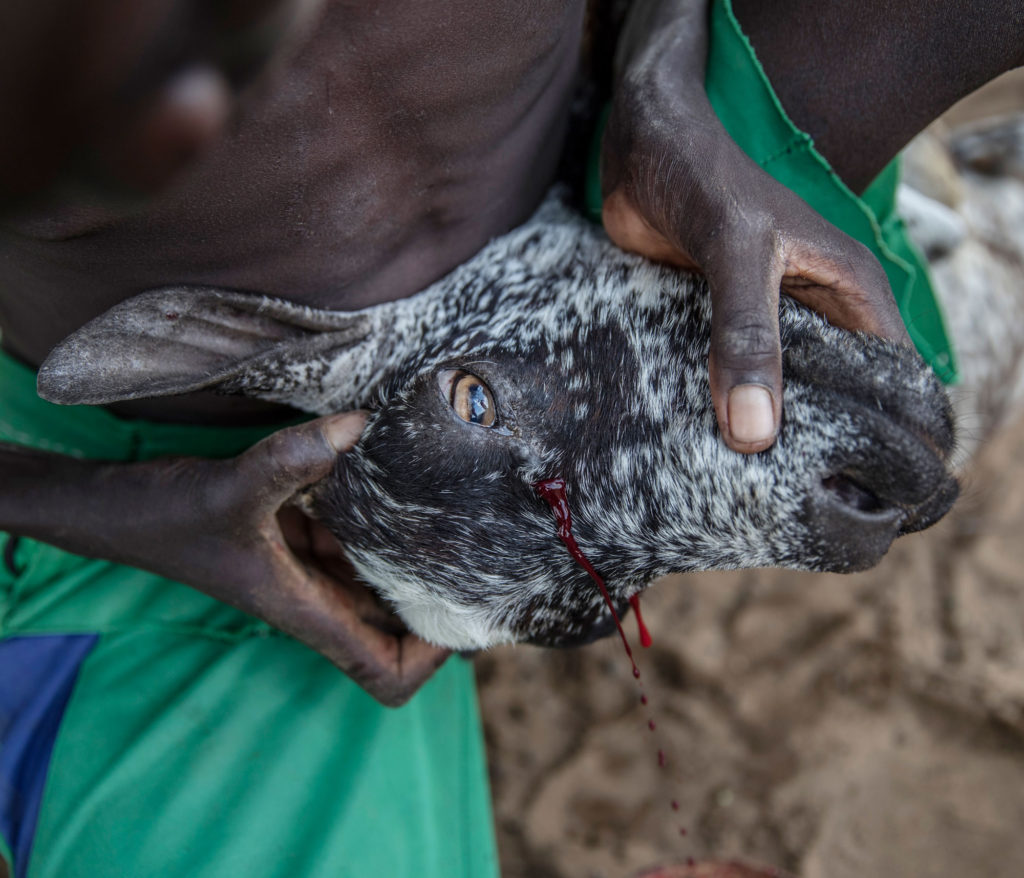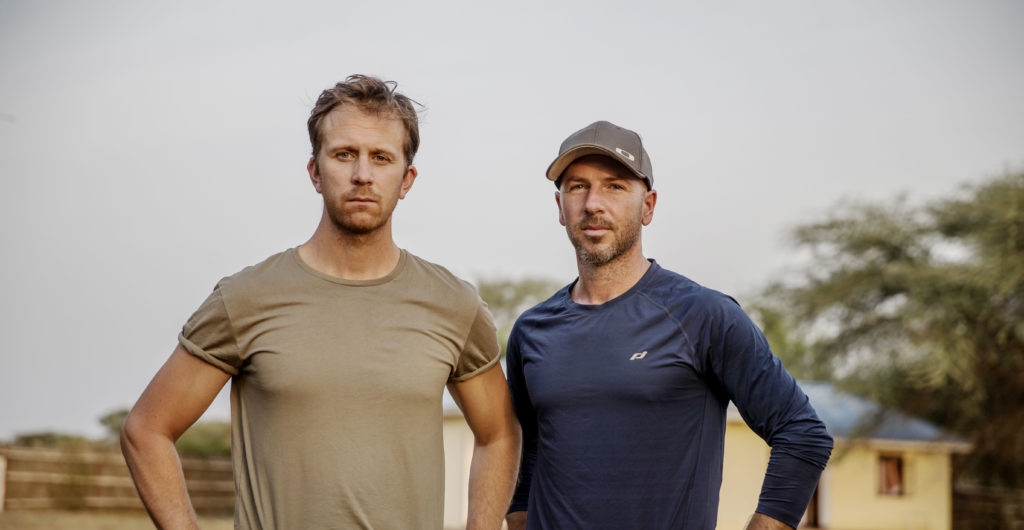The boys survive by drinking goat’s blood
KAPOETA SOUTH SUDAN, JUNE 2017
The three brothers Lokicha, Lokaale and Lotogo have eaten nothing today. They were up before dawn and now they are blinded by the sun as it quickly rises on the horizon.
As the oldest of the siblings, it is their job to look after the family’s goats. The ones that are still alive.
The drought has claimed 20 animals, two thirds of the flock.
The brothers are close to their home village when they sit themselves down under a tree, exhausted. 15 year-old Lokaale leads the goat forward. He sits on the ground and, holding onto its neck, he tips the goat over.
The other brothers take a stick each, with the ends fanned out like small brushes. Cutlery.
It is easy to judge. Be disgusted. It is also easy to make presumptions about a developing country.
But when Lokaale cuts the captured goat’s face with a knife and lets the blood drip down onto a plate, it is not because he wants to. It is also no ritual.
He does it because the blood mixed with a little milk is all he and his brothers are going to get to eat today.


No human food grows here anymore except for leaves, which can be eaten, but they really only fill the stomach rather than giving nutrition and life.
Meat is out of the question. The family has not slaughtered a goat for over a year. Only when yet another animal dies will it be cut up so the family can share the meagre remains.
The goat cries out when it is cut just under the eye, but quickly quietens down.
The wound becomes a tap and the blood runs down into a hollowed out and dried calabash gourd. A couple of decilitres in an unbroken stream.
It takes the brothers half a minute to eat the coagulated lumps and slurp up the pink-tinged milk.
“It tastes sweet,” says eight year-old Lotogo.
In 24 hours he will get to eat again.


HELP US TO HELP
Every day, more children are becoming dangerously malnourished
and they need your help right now.
Swish your donation to 902 0033
Together we can save children’s lives. Thank you.

